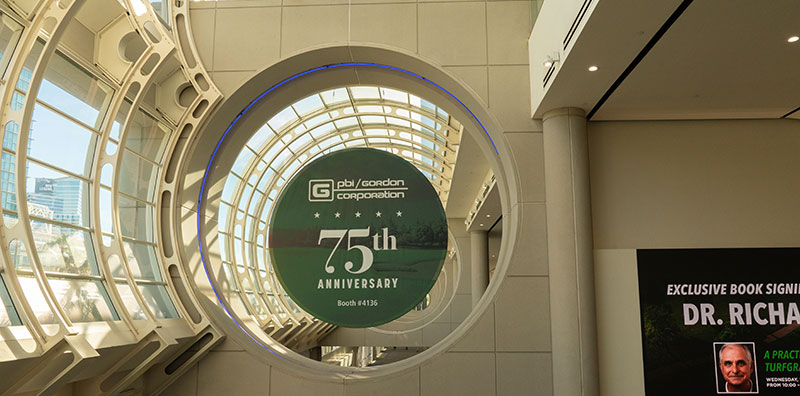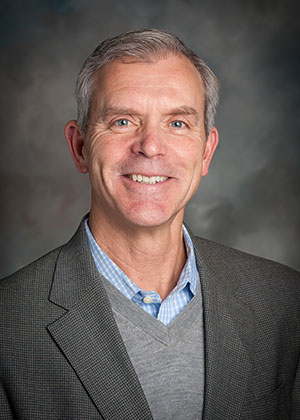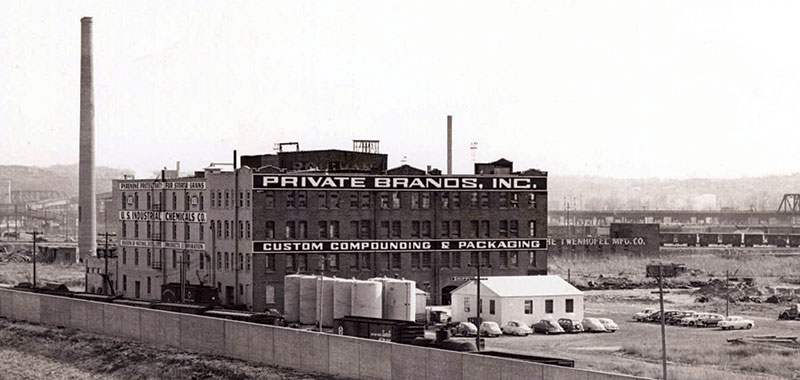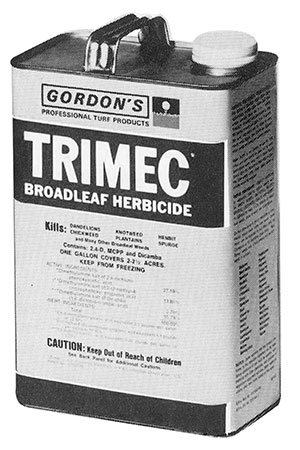
Employee-owned PBI-Gordon officially launched its 75th anniversary celebration at the GCSAA Conference and Trade Show, Feb. 7-10 in San Diego.
It wasn’t by happenstance.
The company that started in 1947 as Private Brands Inc. and was focused on formulating products for the farm industry now offers more than 40 products for golf courses and professional turf and ornamental managers.
During a busy CTS for the PBI-Gordon team, GCM sat down with Neil Cleveland, vice president and general manager of PBI-Gordon Corporation, to talk about the company’s last 75 years — and hopes for the next 75.
GCM: The pandemic … how did you adjust?
 Neil Cleveland: We were in the same boat as everybody trying to figure out what was what. We’re fortunate to be a very small organization. We decided in June of 2020, if our channel partners and our superintendent customers would see us, we would show up. We attempted to do as much of our normal routine as our customers would allow. … We made it work. As you’ve seen, in the golf course market, we had couple of good years. We were able to ride the wave little bit. People working from home realized they could work from 6 in the morning to 3 in the afternoon and then go play nine holes of golf every day, which obviously is good for golf course superintendents and everyone who has the pleasure to work in this industry.
Neil Cleveland: We were in the same boat as everybody trying to figure out what was what. We’re fortunate to be a very small organization. We decided in June of 2020, if our channel partners and our superintendent customers would see us, we would show up. We attempted to do as much of our normal routine as our customers would allow. … We made it work. As you’ve seen, in the golf course market, we had couple of good years. We were able to ride the wave little bit. People working from home realized they could work from 6 in the morning to 3 in the afternoon and then go play nine holes of golf every day, which obviously is good for golf course superintendents and everyone who has the pleasure to work in this industry.
GCM: In 2018, you “retired” from Bayer and unretired at PBI-Gordon. What does 75 years mean to you?
NC: It a big deal, I’ll tell you that. I knew of PBI-Gordon and PBI-Gordon products. I didn’t really appreciate what PBI-Gordon was, but the past 3½ years for me … I’m grateful for this opportunity, grateful that a couple of guys, four of them (John H. Mueller, Robert M. Mueller, John S. Mathias and Roy E. Boxmeyer, who founded Private Brands Inc. in 1947) figured out there was a niche opportunity in the ag market, primarily, for private brands, formulated products being sold primarily into the ag market. Over time, that morphed into the business it is today. … We’ll celebrate it properly.
GCM: What does 75 years mean to the end-user?
NC: I hope we’ve earned … well, it goes beyond hope. In my 3½ years, I’ve learned we’ve earned a seat at the table. Whether that’s across the table from a golf course superintendent or our channel partners — we have some key supplier relationships. We’re not a per se inventor company, but we have terrific formulation capabilities. Some of the major ag players look to us to do interesting things with their active ingredients and bring that to the market. Hopefully, 75 years indicates to them, obviously, these guys have figured some things out. They continue to grow their business. There’s some stability, some peace of mind there. The way I look at it, one of my favorite experiences with golf course superintendents is going out early in the morning in a golf cart. It’s sort of, “Let me show you the problem that I had. Let me show you what I and my team have done.” There’s personal pride in what they’ve accomplished, and we played a little role there. That’s fun. We enjoy that.

GCM: What are some of the seminal moments in company history?
 NC: I go back to the foresight of those four gentlemen who founded the company, who kind of carved out a niche in the heart of corn and soybean country to do that. For this business, Trimec was the go-to herbicide. I had a long, positive history with Trimec. One of the milestones within this business was accessing that technology, the patent that took place with Trimec. That really launched this company and greatly helped golf course superintendents and lawncare/landscape business owners. It was a nice tool, an interesting formulation, a lot of weeds controlled. We’re not a per se inventor company. We don’t do basic research, like a Syngenta or a Bayer. What we do is, we take those molecules, and with the brilliance that we have with formulation, we created a three-way, four-way, five-way herbicides that, again, broaden the spectrum, ease of use, etc. Whatever brain trust was in place in the late ’60s, ’70s, and ’80s established that culture, that we will have excellent formulation chemists, and it will be very science-based how we do this and to just continue to do that to this day.
NC: I go back to the foresight of those four gentlemen who founded the company, who kind of carved out a niche in the heart of corn and soybean country to do that. For this business, Trimec was the go-to herbicide. I had a long, positive history with Trimec. One of the milestones within this business was accessing that technology, the patent that took place with Trimec. That really launched this company and greatly helped golf course superintendents and lawncare/landscape business owners. It was a nice tool, an interesting formulation, a lot of weeds controlled. We’re not a per se inventor company. We don’t do basic research, like a Syngenta or a Bayer. What we do is, we take those molecules, and with the brilliance that we have with formulation, we created a three-way, four-way, five-way herbicides that, again, broaden the spectrum, ease of use, etc. Whatever brain trust was in place in the late ’60s, ’70s, and ’80s established that culture, that we will have excellent formulation chemists, and it will be very science-based how we do this and to just continue to do that to this day.
GCM: The fact that you’re launching your 75th anniversary celebration at this event, obviously that was intentional.
NC: We knew this would be our 75th anniversary, and as we laid out our calendar, this event had a big star on it. This was a good place to kick things off. It made perfect sense. We bring good value, and we intend to do more.”
GCM: What do the next 75 years hold in store?
NC: Well, we’ll still be here. I take in five- and 10-year chunks. That’s the horizon we’re looking at.
Cleveland then tells about an early-1980s experience of his in the lawncare realm, when companies routinely treated outbreaks of New Jersey gypsy moths by rolling into residential neighborhoods and spraying product 80 feet into the treetops.
And everybody would love it, because we were taking care of the problem. Now, flash-forward to not long after that, and you can’t do that anymore. Today, our products … I know enough from my time spent on the ag side with Bayer, I know that technology is going to come down to precision. Our products are built for edge to edge on the fairway, tee to green. Our products in the future are going to have to be about precision. That’s a technology play, a formulation play, that we’re flat-out experts at. I’d say, for the next 10 years, what we currently do, we’ll be able to continue to do that. But it will become lesser and lesser, because A) it’s the right thing to do, and B) the legislative, regulatory, political or social pressure are going to be there. I see the future being about precision, things being done more precisely. And this conference is phenomenal in terms of forward-thinking education. We walk the trade show floor, and we’ll see indicators of what we need to do with our control products.
We’re a nice-sized company. We’re independent and well resourced. We can take some chances that maybe some other folks wouldn’t take. … We don’t have $3½ billion in our pocket, but there will be some nice opportunities out there that will allow us to continue to bring value to the golf course superintendent. Broadening our portfolio … one of the things we’re doing here today is, walk the floor, walk the floor, walk the floor. Who’s that company? Why is that company here? What are they offering to the golf course superintendent? Does what they’re offering fit our core competencies? If not, is it something we should be investigating? We aim to be a valuable player in this segment, a valuable partner with golf course superintendents.
I don’t see the culture changing. I don’t see the commitment changing. We are totally focused on creating future leaders within our organization. Our focus over the next five to 10 years, to make sure there is another 75 years, it to make sure in-house that we’re building the next leaders for PBI-Gordon.
GCM: You have a degree in agronomy. Did you ever consider a career as a golf course superintendent?
NC: Between my sophomore and junior years (in college), I worked at a greenhouse/nursery/minigolf/nine-hole pitch-and-putt golf course. I didn’t play golf. I didn’t grow up around golf. I do love the turf part. I loved the horticulture part. I loved the forestry part. But it was just one of those things, it never crossed my path. The folks I graduated with were going into their own landscape business. I graduated on a Sunday, and I was spraying lawns on Monday. I didn’t get an appreciation for what golf course superintendents until 1993, when I went to work for Bayer. It’s a beautiful responsibility they have.